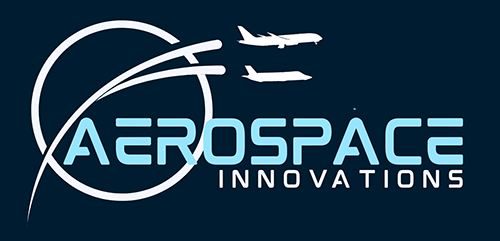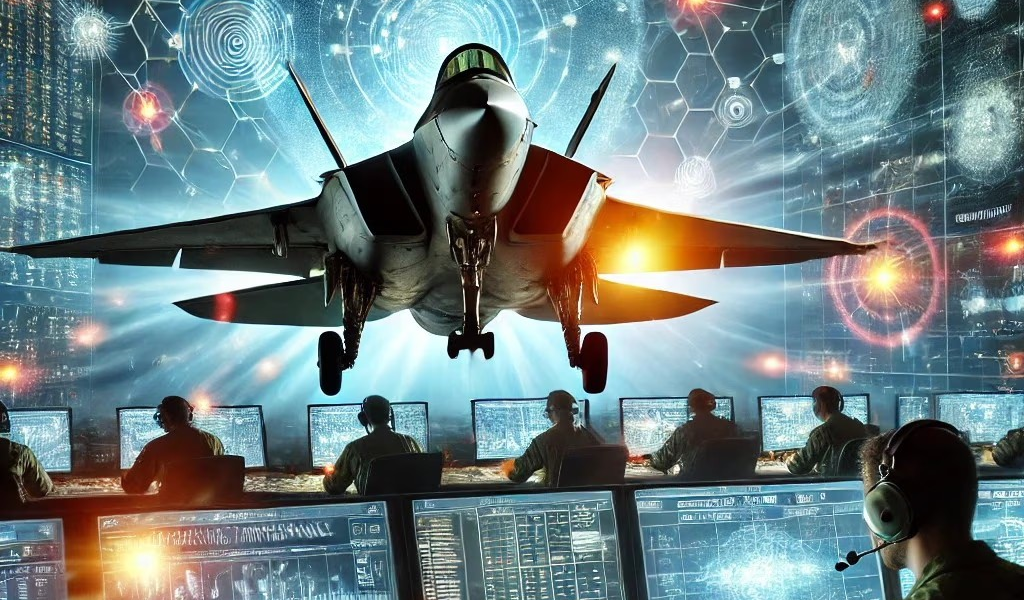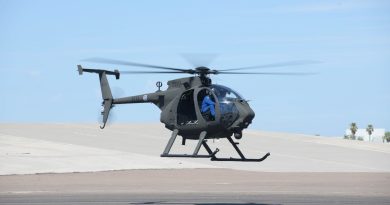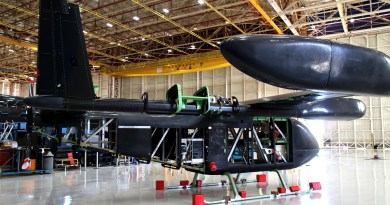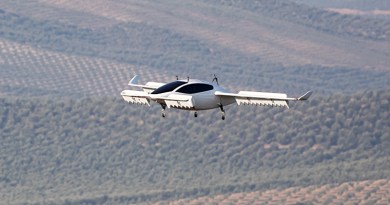Protecting aircraft with Artificial Intelligence: Thales and partners selected for first European project to develop sovereign AI for embedded cyberdefence
- Thales has been selected for the Artificial Intelligence Deployable Agent (AIDA) project funded by the European Commission through the European Defence Fund (EDF). A total of 28 European industry partners, start-ups and research centres have joined forces on this project to develop a sovereign AI-enabled cybersecurity agent to protect aircraft systems from cyberattacks.
- The goal of this three-and-a-half-year European project is to design an AI with an autonomous or semi-autonomous response capability to provide cybersecurity protection for aircraft systems such as onboard computers and electronic warfare systems on combat aircraft, which are vulnerable to increasingly sophisticated cyberattacks in today’s high-intensity conflicts.
- AIDA is the first European structural framework project in support of the NATO concept of Autonomous Intelligent Cyberdefence Agent (AICA).1
Thales is technical coordinator for the AIDA project funded by the European Commission, with CR14 in Estonia in charge of overall project coordination.

This EDF project is a response to three major challenges faced by the armed forces today: attack surfaces are growing due to battlespace digitisation; the cyberattack detection-response chain needs to be automated due to the ever-greater use of autonomous systems such as drones and robots; and AI is being used ever more widely both to launch and respond to cyberattacks.
Christophe Salomon, Executive Vice President, Secure Communications & Information Systems, Thales: “This project initiated by the European Union is fundamental to the security of our combat systems and the sovereignty of our cyberdefence capabilities. It is a chance for Thales to consolidate its strengths in onboard aircraft systems and sovereign cybersecurity solutions, and a further opportunity to leverage our AI hacking expertise. Thales’s AI accelerator, and in particular cortAIx, will be directly involved in the AIDA project. The ultimate goal is to employ AI-enabled techniques for detecting threats and protecting aircraft systems from the growing risks and dangers encountered in today’s high-intensity, technology-driven conflicts.”
Responding to the 2023 European Defence Fund call for projects for the development of deployable autonomous AI agents,1 Thales submitted an innovative proposal based on the training of intelligent cyberdefence agents capable of identifying, protecting, detecting and responding to cyberthreats in real time in the five military operating domains:2 land, air, sea, space and cyberspace.
Thales will also lead the project to develop a prototype aircraft using frugal AI agents to protect electronic warfare equipment installed on combat aircraft. This prototype will be tested, using Thales’s Cybels Analytics solution in particular, in scenarios including cyber-electromagnetic threats and advanced adversarial AI attacks.
AI is being used increasingly in the theatre of operations to increase the detection performance of air defence radars, for example, and to help plan tactical missions and assign tasks to swarms of drones and robotic systems. This type of AI must be reliable, robust and cybersafe to prevent it being exploited by hostile forces in any environment (land, sea, air, space and cyberspace). To counter this type of threat, Thales’s Friendly Hacker Unit will conduct a battery of adversarial AI attacks and define appropriate countermeasures to ensure that these cyberdefence AI agents can never become targets themselves.
Global leader in data protection and cybersecurity
As a world leader in cybersecurity, with more than 5,800 experts in 68 countries, Thales is involved at every stage in the civil and defence value chain: Identify, Protect, Detect, Respond, Restore. Thales develops sovereign products including encryptors and sensors for governments and institutions to protect their critical information systems, as well as sovereign cyberthreat detection products to protect embedded and onboard systems. Thales is a trusted partner of the Galileo satellite navigation system, operating a number of national encryption laboratories in Europe and supplying NATO member countries with the only tactical IP encryptor with “Cosmic Top Secret” security certification. Thales is also a strategic partner of the German, UK, French and Belgian defence ministries for the construction and handover of key management centres and infrastructure.
AI at Thales
Thales is a major player in trusted, cybersafe, transparent, explainable and ethical AI for armed forces, aircraft manufacturers and critical infrastructure providers. The Group employs over 600 engineers specialising in AI and around 100 doctoral candidates are conducting their AI research with Thales. Organised within Thales’s AI accelerator for research (AI Lab), systems, including decision support systems, (AI Factory) and sensors, including sonar, radar, radios and optronics, (AI Sensors), these experts are helping to incorporate AI into over 100 of Thales’s products and services. Thales’s AI capabilities draw on the most advanced sensor and system technologies to address the full spectrum of user requirements in the defence, aviation, space, cybersecurity and digital identity industries. Trusted AI is designed to meet the specific security and sovereignty needs of Thales’s customers. It brings greater efficiency to data analysis and decision support and speeds up the detection, identification and classification of objects of interest and target scenes, while taking account of specific constraints such as cybersecurity, embeddability and frugality in critical environments.
In 2023, the Group was Europe’s top patent applicant in the field of AI for mission-critical systems. Also in 2023, the Group’s Friendly Hacker Unit demonstrated its credentials at the CAID challenge (Conference on Artificial Intelligence for Defence) organised by the French defence procurement agency (DGA), which involved finding AI training data even when it had been deleted from the system to preserve confidentiality.
Thales’s European partners in the AIDA project:
SIHTASUTUS CR14 (CR14)
THALES SIX GTS France (TSGF)
THALES SA (TRT)
THALES AVS FRANCE SAS (TAVS)
THALES DMS FRANCE SAS (TDMS)
INDRA SISTEMAS SA (IND)
LEONARDO – SOCIETA PER AZIONI (LDO)
TELESPAZIO SPA (TPZ)
AIT AUSTRIAN INSTITUTE OF TECHNOLOGY GMBH (AIT)
SPACE HELLAS ANONYMI ETAIREIA SYSTIMATA KAI YPIRESIES TILEPIKOINONIONPLIROFORIKIS ASFALEIAS – IDIOTIKI EPICHEIRISI PAROCHIS YPERISION ASFA (SPH)²
HONEYWELL INTERNATIONAL SRO (HON)
WOJSKOWA AKADEMIA TECHNICZNA IM.JAROSLAWA DABROWSKIEGO (WAT)
EVIDEN TECHNOLOGIES SRL (EVD)
Decent Cybersecurity s. r. o. (DEC)
GYALA S.R.L. (GYA)
FORSVARETS FORSKNINGINSTITUTT (FFI)
SensorFleet Oy (SEN)
NIXU OYJ (NIX)
Aliter Technologies, a.s. (ALI)
THALES EDISOFT PORTUGAL, S.A. (EDI)
HITEC LUXEMBOURG SA-HITEC (HIT)
MINISTERUL APARARII NATIONALE (MET)
INSTITUTO SUPERIOR DE ENGENHARIA DO PORTO (ISEP)
DOTOCEAN (DOT)
WB Electronics S.A. (WBE)
ADVOKAADIBUROO SORAINEN OU (SOR)
HarfangLab SAS (HAR)
AKHEROS SAS (AKH)
